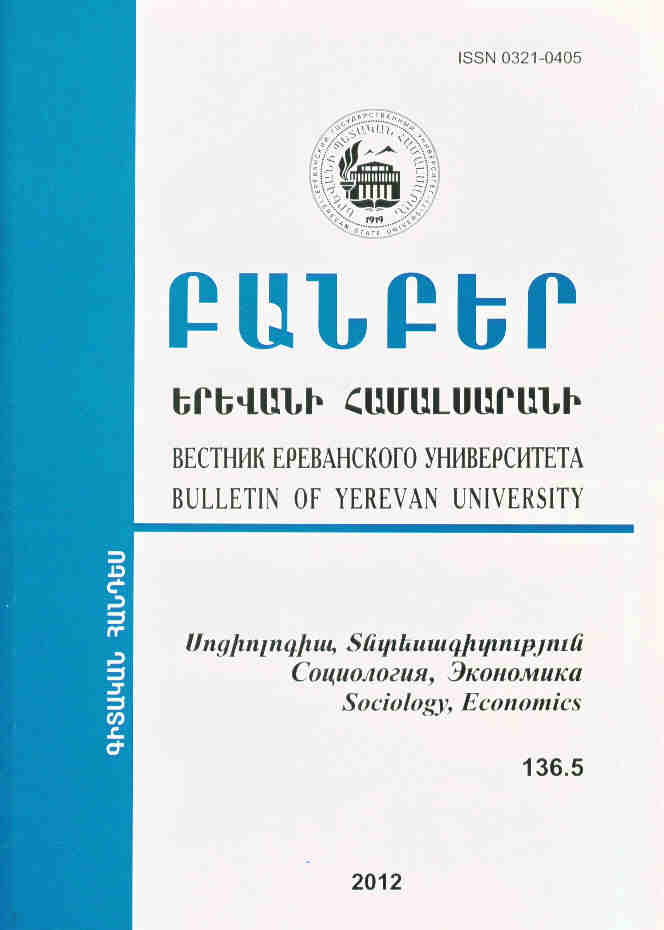Assessing the Intellectual Property of CIS Countries in the Context of Science
DOI:
https://doi.org/10.46991/BYSU:G/2012.3.1.050Abstract
Each era poses its own challenges not only for individual countries but also for mankind as a whole. It is undeniable that the main challenge of the 21st century is the creation of a knowledgebased society that ensures a country’s position, its prosperity and status in the rapidly changing global landscape. Traditionally, economists consider physical and human capital as key resources for facilitating productive and economic activity. However, knowledge, too, has been reorganized as a valuable resource. And although the role of knowledge was admitted long ago its investment into everyday life process came to existence later, particularly in some regions and states. The issue is of particular concern to post-Soviet area. The collapse of the Soviet Union did not match a breakthrough in R&D sector. The reforms towards the reanimation of Intellectual capital began to be implemented only after a significant delay. Moreover, they were far not in conformity with economic needs. One of the past heritages still remained a significant gap between what industries need and the quality of human resources. It is also difficult to underestimate the role of funding in the sector. However, despite multiple challenges, IC (intellectual capacity) in some Republics is very promising, particularly from the perspective of economic competitiveness. Maintaining past experiences and mentality threats, there is a possibility to adopt new Societal Innovations and mark a breakthrough.
Downloads
Published
Issue
Section
License
Copyright (c) 2012 Bulletin of Yerevan University

This work is licensed under a Creative Commons Attribution-NonCommercial 4.0 International License.

